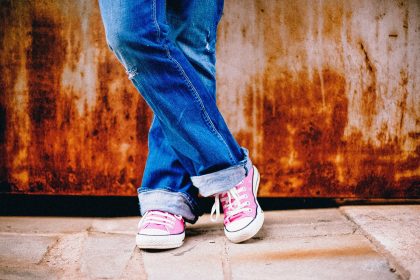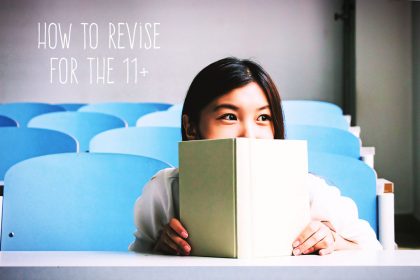How to help your child deal with exam result stress
Has your child not got the exam results they wanted? Find out how you can help them deal with exam result stress.
As young people anxiously await their GSCE results today, new research published by youth mental health charity stem4 finds that academic stress is now the number one cause of mental health distress.
Of the 1,000 young people surveyed, six in ten (59%) 13 to17 year-olds say they are experiencing mental health difficulties, such as anxiety, low mood, eating disorders and self-harming behaviours. More than half (53%) now say that academic stress is having a greater negative impact on their mental health than loneliness (49%) or uncertainty about their future (44%).
The survey asked young people what they aspired to most in the future. 70%, say they just want to be healthy and happy and to have a stable job (56%). Only 27% say they want to make a lot of money, although as many 42% described lack of confidence or fear of failure as a barrier to success.
Dr Nihara Krause, Consultant Clinical Psychologist, founder of stem4, said:
“Young people feel under increasing pressure to do well academically, particularly after the disruption to their learning by the pandemic, but fear of failure, combined with lack of confidence, is often holding them back. The confidence of young people who have received exam grades this year hasn’t been helped by many feeling discredited of their achievement, by dismissive, public discussion about disproportionately high national grades.
“We need to support the achievements of young people, encouraging them to believe they have earned their marks, that teachers are fair assessors of ability and that they should be proud of getting into the next stage of their development.
“It’s time we started to boost confidence and look at this pandemic impacted younger generation’s overall wellbeing rather than their academic attainment, which is divisive and only serves comparison of which school, class, or person is better than the other. Many studies have shown that children with higher wellbeing measures and confidence fare better academically.”
The research commissioned by stem4 also found that young people often lack the skills to look after their mental health. Only 33% of young people say they eat a healthy diet, and even fewer, 27%, get adequate sleep. Meanwhile just 23% say they are equipped to manage their negative thoughts, and less than half as many,10%, are able to manage negative stress.
How to help your child manage their mental health on results day
So how can you help your child manage their mental health on results day? Here’s some advice from Dr Nihara Krause.
Dealing with disappointment
Remember, exams are a measure of your school work and test performance, they are not a statement about who you are. Just because your results are disappointing, it doesn’t mean you are too. You can work on managing your performance differently next time.
Celebrate yourself
Regardless of your results, you managed to get through a year of schooling and assessments during a global pandemic. You deserve to celebrate simply for trying your best in a difficult period.
Communicate your feelings
If a friend has got the results they wanted and you haven’t, try not to let anger or jealousy get in the way of your friendship. Instead, congratulate them, but let them know you feel fragile. Don’t compare your situation to anyone else’s – everyone is on a different path, and sometimes not getting what you wanted provides other opportunities you never considered.
Try to be empathetic
If you have fared better than a friend, try and put yourself in their shoes, and think about how they might be feeling. Don’t put down your performance or any tests (for example, ‘I didn’t work that hard’ or my assessments must have been easy’), focus instead on how they would like to be supported, rather than on your own experience.
If you are worried about the mental health of a friend, you can learn how to support them using the free Combined Minds app.
How to help your child believe in themselves and feel proud of their results
If your child is struggling with their results and their belief in themselves, here’s some advice to help them.
Feeling a fraud?
Feeling a fraud because you haven’t sat the ‘real ‘exams? Or because others are saying too many people got high grades so your work doesn’t matter? Education is a process not just an assessment. Remind yourself of what you had to read, revise, discuss and be marked on in the lead up to your exams. Your teachers are fair assessors of your ability. Believe in yourself. You have earned your marks.
Try not to take on board what other people are saying about your results, or the way in which you might have achieved them. It has been an unprecedented year for students and you have had to adapt to a number of educational challenges. You deserve to feel proud of your grade regardless of what others think.
Not got the results you anticipated?
Stop comparing yourself to others. Try to catch yourself when you begin to rank yourself against the grades of a friend, older sibling, or different year group. Everyone’s experience of exams, assessments and school is different – focusing on your own path is all that matters.
And remember that the best way to learn is through mistakes. By facing disappointment now, you are giving yourself a better chance for success in the future. All you have to do is get back up and try again.
How to help your child build their academic resilience post pandemic
The impact of the pandemic on learning has been huge for many students. Limited access to good quality online learning, difficulty in motivating yourself to learn and engage with online information, and finding it harder to balance distractions at home may have all impacted on your child’s performance.
Here are some tips to help them build their academic resilience:
- Focus on any gaps in knowledge and set yourself some goals on how to catch up.
- Ask your teachers/tutors to help you.
- .Take steps to support your mental health if it has been impacted over the pandemic. Better mental health means better learning.
- Focus on building your academic confidence one step at a time. This means taking on small amounts of work and making sure you complete them on time. Compliment yourself for doing well.
Read more advice to help with exam stress and anxiety
You can read more advice to help your child deal with exam stress and anxiety in these articles:
- Forget exam grades! Here are seven things that every teenager needs on their CV
- How to cope with exam failure – and five ways to deal with exam results stress
- Three things you can do to help if your child or teenager is suffering from anxiety
- Eight reasons why every teenager needs a life coach
Photo by rayul










